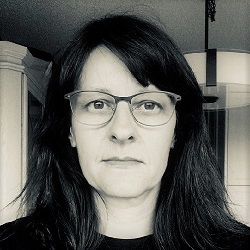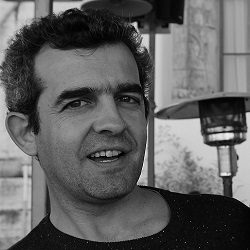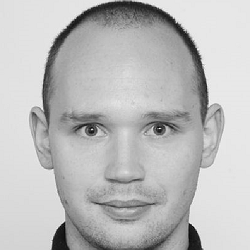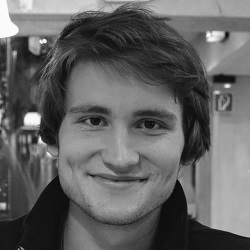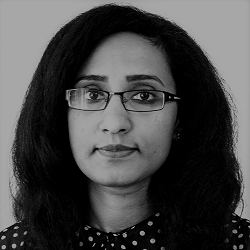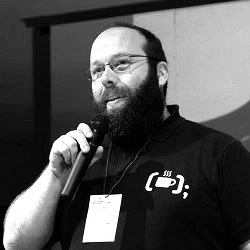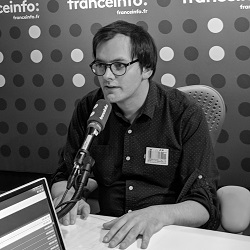In a nutshell

EU Datathon 2018: Four teams take home a trophy: Medicatio, Lexparency, Tenderlake and Open Food Facts
The EU Datathon 2018 competition culminated in Brussels on 2 October with the selection of the winner app in each of the four thematic challenges. The competition illustrates the power of open data to stimulate enterprises, start-ups, individuals and other data enthusiasts from all over Europe to find practical solutions to societal problems, as well as to generate jobs and growth.
Preselected among 72 proposals, 16 finalist teams pitched their projects in front of a gathering of app developers, public and private open data specialists and start-up facilitators from many EU countries. Participants had to develop apps using at least one dataset available via data.europa.eu and could combine it with other data sources.
This second EU Datathon had many new features. Contestants could compete in one of four parallel challenges, each with a different topical area, aims and partner organisers. All finalists received a share of 40,000 EUR in prize money, according to their ranking, with the first prize being 5,000 EUR for each of the four challenges.
EU Datathon 2018 was organised by the Publications Office of the European Union together with several partners including the ELI Task Force, the European Food Safety Authority and three directorates-general of the European Commission (Internal Market, Industry, Entrepreneurship and SMEs; Communications Networks, Content and Technology; and Informatics).
And the winners are...
Medicatio impressed the jury in the challenge ‘EU open data — For more innovation in Europe’. The app applies cutting-edge technology to provide user-friendly information on medicines in a growing number of European languages. The app features a search engine for medicines and also offers additional information, for example on usage and drug interactions. It uses open data from both the EU Open Data Portal and the European Data Portal.
Lexparency won first prize in the challenge ‘National and EU law — Make legislation interoperable’. Using the European Legislation Identifier (ELI), the app provides a smarter way to search and navigate through legislation. Users can search within legislative texts and the results feature semantic markup for technical terms, cross-references and related resources.
Tenderlake scored top marks for the challenge ‘EU public procurement — Value for citizens, value for businesses’. The application uses data from TED (Tenders Electronic Daily) and artificial intelligence (AI) to make it easier to identify relevant public contracts. The app reads the websites of businesses and learns what they do, then proposes relevant contract opportunities. The app’s AI continually learns from new TED notices.
Finally, the jury awarded first prize to Open Food Facts, a Wikipedia-like tool for food products, in the challenge ‘European Food Safety Authority — Fostering data reuse and innovation’. The app uses EFSA data to show the public what is in the food they eat daily, covering 650,000 products from around the world. By integrating the OpenFoodTox open data on chemical hazards, it also helps identify the amounts and types of additives in food.
Addressing all the finalists, Rudolf Strohmeier, Director-General of the Publications Office of the European Union, said: 'being shortlisted in this EU-wide competition is already a vote of confidence and will put wind in your sails and take you even further.'
What comes next?
Looking at the next steps for all stakeholders, Rudolf Strohmeier highlighted: 'The discussions have shown the need for a true EU-wide open data ecosystem in which we all do our part, some of us on the supply side and some of us on the user side; but with all of us committed to the idea of openness and transparency.' Finally, he announced that the next EU Datathon will be in 2019!
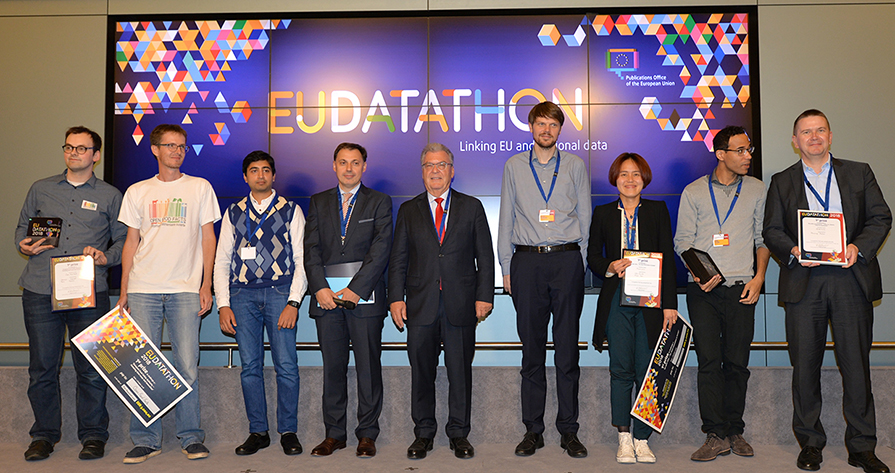
OP Director-General Rudolf Strohmeier (centre) with the four challenge winning teams of EU Datathon 2018
Agenda, 2 October 2018
| Opening | ||
|---|---|---|
| 9.30 |
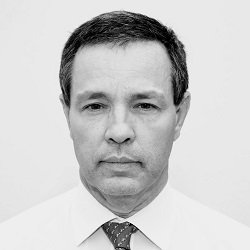 |
Welcome speech António Carneiro (Director, Dissemination and reuse, Publications Office of the EU) |
 |
Keynote speech Natalie Aristimuno Perez (Head of unit, Interoperability, DG DIGIT, European Commission) |
|
| Challenge 1: 'EU open data — For more innovation in Europe' | ||
| 9.45 |
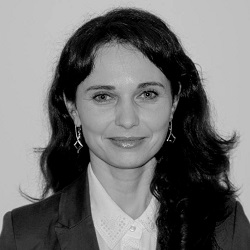 |
Opening speech Agnieszka Zając (Deputy Head of unit, EU Open Data and CORDIS, Publications Office of the EU) |
| Finalists showcase their apps | ||
| Break | ||
| Challenge 2: 'National and EU law — Make legislation interoperable' | ||
| 11.15 |
 |
Opening speech John Dann (Director for central legislation service, Ministry of state Luxembourg) |
| Finalists showcase their apps | ||
| Break | ||
| Challenge 3: 'EU public procurement — Value for citizens, value for businesses' | ||
| 13.15 |
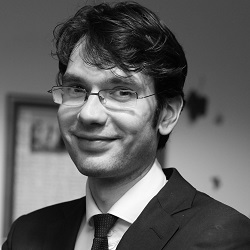 |
Opening speech Tudor-Trestieni Ion (Policy officer public procurement, DG GROW, European Commission) |
| Finalists showcase their apps | ||
| Break | ||
| Challenge 4: 'European Food Safety Authority — Fostering data reuse and innovation' | ||
| 14.15 |
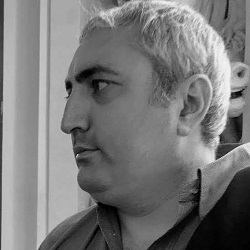 |
Opening speech Davide Arcella (Team leader, Exposure in the risk assessment, European Food Safety Agency) |
| Finalists showcase their apps | ||
| Break | ||
| Keynote speeches | ||
| 14.15 |
 |
Keynote speech Sander van der Waal (Head of network and partnerships, Open Knowledge International) |
 |
Panel: 'New business opportunities through the Public Sector Information Directive' Dinand Tinholt (Vice president, Capgemini Consulting, European Data Portal consortium) |
|
| Break | ||
| Award ceremony | ||
| 17.00 |
 |
Closing speech Rudolf Strohmeier (Director-General, Publications Office of the EU) |
| Awarding of prizes to winners | ||
Speakers

Davide Arcella
Team leader
EFSA

Natalie Aristimuno Perez
Head of unit
European Commission
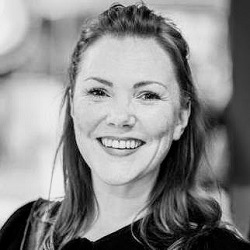
Jennifer Baker
Moderator
EU tech policy reporter

António Carneiro
Publications Office of the EU
Acting Director-General

John Dann
Director
Ministry of state

Norbert Hohn
Assistant to the DG
Publications Office of the EU

Tudor-Trestieni Ion
Policy officer
European Commission

Jeremy Itzcovitz
Business manager
Transport for London
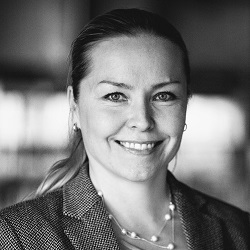
Tanja Lahti
Project manager
City of Helsinki
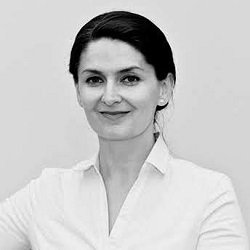
Carmen Malagon
Head of sector
Publications Office of the EU

Jiri Pilar
Legal and policy officer
European Commission

Heiko Richter
Research fellow
Max Planck Institute
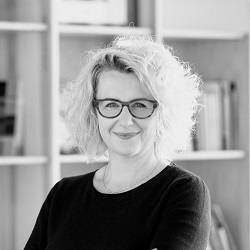
Anna Sienicka
Vice president
Techsoup Europe

Rudolf Strohmeier
Director-General
Publications Office of the EU

Dinand Tinholt
Vice president
Capgemini Consulting

Sander van der Waal
Head of partnerships
Open Knowledge

Agnieszka Zając
Deputy head of unit
Publications Office of the EU
Jury members

Davide Arcella
Team leader
EFSA

Andreas Belschner
Salesforce
Strategic account manager

Benjamin Carpano
CEO
ReportLinker

Thierry Coopman
Ingenico Group
Head of product

John Dann
Director
Ministry of state

Santiago Fidel
Programme manager
European Commission

Norbert Hohn
Assistant to the DG
Publications Office of the EU
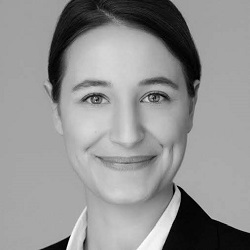
Esther Huyer
Consultant
Capgemini Consulting

Tudor-Trestieni Ion
Policy officer
European Commission

Carmen Malagon
Head of sector
Publications Office of the EU
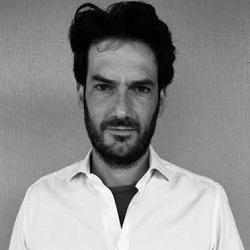
Cesare Mazza
EFSA
Business analyst

Nicolas Perard
Investment manager
EIF
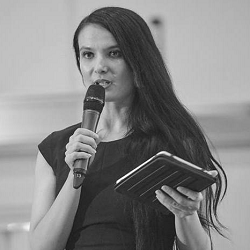
Veronica Stefan
Founder
Digital Citizens Romania
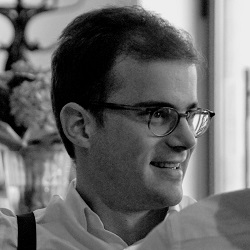
Andreas Thanopoulos
CEO
C4P
Challenge 1:
EU open data — For more innovation in Europe
Digiotouch
Description of app: Digiotouch provides digital transformation of the EU trade through intelligence generation for public sector, companies and citizens.
Datasets: Trade
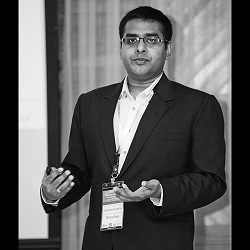
Soumya Kanti Datta
Estonia
EURI Trends
Description of app: EURI Trends and gaps provides an enhanced visualisation and analysis tool on R&I EU funding data cross-referenced with EU data on venture capital investments and R&D expenditures.
Datasets: CORDIS
Medicatio
Description of app: Medicatio applies cutting-edge technology solely for the purpose of making a more user-friendly information environment on medicines for all European languages.
Datasets: Medicine
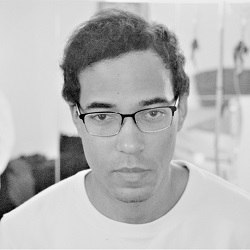
Willy Duville
France

Miwon Seo
France
MEPWatch.eu
Description of app: Score your MEP on the issues you care about: closing the knowledge gap and promoting fact-based CSO campaigning for the European elections.
Datasets: Politics and transparency
Challenge 2:
National and EU law — Make legislation interoperable
INCM
Description of app: ELI on the go! This project aims to create a mobile app that connects all legislation through an optimized search and visualisation aids easily shareable through push notifications to other users.
Datasets: ELI as a mobile app
LAWANNOTATIONS
Description of app: German and English documents published by parliaments or city councils are automatically modified so that law references are linked to ELI URLs.
Datasets: ELI for Germany
Lexparency
Description of app: A smarter way to search and navigate legislations.
Datasets: ELI for search
LYNX
Description of app: We first propagate ELI relations between documents to the sentence level, and second learn from the existing links to discover new links.
Datasets: ELI and NLP for navigation
Challenge 3:
EU public procurement — Value for citizens, value for businesses
Charles University
Description of app: An online mapping tool visualises suppliers of EU governments’ public procurement, with a focus on companies abroad and in tax havens.
Datasets: Tender analysis (Opentender)
Perfektio
Description of app: Using the open tender data, we will aim to visualise data relevant to open innovation and innovation procurement, in order to boost innovation procurement and information among businesses, government agencies and citizens.
Datasets: Innovation procurement
PublicBI
Description of app: BI solution for the benefit of the public to help them uncover hidden trends, patterns, correlations and anomalies in EU public procurement.
Datasets: Trend analysis
Tenderlake
Description of app: Tenderlake Genius - using AI to make it easier to identify relevant public contracts.
Datasets: Tender proposals

Flemming Madsen
United Kingdom
Challenge 4:
European Food Safety Authority — Fostering data reuse and innovation
2 Think
Description of app: FUSE is a data visualisation project to render 3D visual information about food consumption and toxic datasets on an EU map.
Datasets: Visualise trends in Europe

Roberto Capuano
Italy
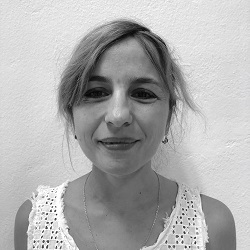
Loana Elisabeta Maier
Romania
Coffice
Description of app: Do you eat healthy foods? Fill in the food-shopping list and discover risk factors of each food. Or learn more through detailed info sheets.
Datasets: Display individual risk factors
Dazult
Description of app: OpenHESS uses open data to examine chemical food risks in Europe and shows how the EU reduces the risks to consumers from imported foods.
Datasets: Chemicals exposure

Paul Dempsey
Ireland
Open Food Facts
Description of app: Integrate OpenFoodTox with Open Food Facts to show EU citizens what is in the food products they eat daily.
Datasets: Crowd-sourced platform
Webinars
Webinar 1
Webinar 2
Webinar 3
Webinar 4
Webinar 5
Webinar 6
Photos
Rules
OUTLINE
What is the EU Datathon 2018?
The Publications Office of the European Union is organising the EU Datathon 2018. EU Datathon is a competition intended to highlight the potential of linking EU and national data as well as to promote the reuse of open data. Participants are invited to develop apps using at least one dataset produced by the EU Institutions or Agencies available on the EU Open Data Portal.
The partners of the EU Datathon 2018 are the Directorate-General for Internal Market, Industry, Entrepreneurship and SMEs, the European Data Portal, the European Food Safety Authority, the ELI Task Force (European Legislation Identifier) and the ISA² programme.
What are the objectives?
- To produce innovative applications, including visualisations.
- To showcase the advantages of the ELI.
- To highlight the potential of EU public procurement data.
- To promote the reuse of open data as an enabler in the growing data economy.
- To stimulate the use of open data issued from public administrations.
- To engage with new audiences.
WHO CAN PARTICIPATE?
The rules are based on Article 138 of the Financial Regulation (FR) and its Rules of Application (RAP). The competition will respect the principles of transparency and equal treatment.
- The EU Datathon 2018 is open to anyone, including data scientists, computer programmers, graphic and interface designers, data journalists, data community activists, IT project managers, etc., who is interested in creatively tackling societal challenges through data exploration and/or in creating prototype products based on open data.
- The EU Datathon 2018 is open to teams composed of one or more individuals, one or more companies or one or more other legal entities based in the EU or in European Free Trade Association countries.
- Teams from the EU Datathon 2017 can only participate with a new project for this year’s application.
- The EU Datathon 2018 is not open to staff working in the EU institutions, agencies and bodies.
- By the submission of the project description, the teams declare that the application will be developed after the launch.
CHALLENGES
The EU Datathon 2018 involves four thematic challenges. Each challenge is organised as a separate competition of equal importance, under the umbrella of the competition (separate registration, shortlisted teams, presentations, jury and prizes).
Teams can register for only one of the following four challenges.
Challenge 1: ‘EU open data — For more innovation in Europe’
Condition: the goal of this challenge is to combine one dataset from the EU Open Data Portal and one dataset from the European Data Portal.
Webinar: Friday, 01/06/2018 at 11.00 via WebEx.
Challenge 2: ‘National and EU law — Make legislation interoperable’
Condition: the goal of this challenge is to show the added value using ELI for linking EU legislation and national legislation. More information here.
Webinar: Friday, 08/06/2018 at 11.00 via WebEx.
Challenge 3: ‘EU public procurement — Value for citizens, value for businesses’
Condition: the goal of this challenge is to propose a project using any public procurement data (e.g. OpenTender, TED in CSV or XML, eCertis, etc.) that adds value for European citizens, companies or public administrations.
Webinar: Friday, 15/06/2018 at 11.00 via WebEx.
Challenge 4: ‘European Food Safety Authority — Fostering data reuse and innovation’
Condition: the goal of this challenge is to come up with innovative ideas on how to use the Comprehensive European Food Consumption and/or the OpenFoodTox database. More information here.
Webinar: Friday, 22/06/2018 at 14.00 via WebEx.
What should the result be?
The result should be a new, original mobile or web application (‘the application’) that addresses a policy or societal challenge of free choice and helps improve the everyday lives of citizens. The explanatory webinars that are accessible for participants will provide more information on the features and datasets of the challenges.
CLARIFICATIONS
Participants may request any clarification on the competition up to 5 working days before the deadline of the submission.
The requests for clarification should be submitted in writing to the following e-mail address: OP-DATATHON@publications.europa.eu.
All questions and answers will be published on the EU Datathon 2018 website.
EVALUATION
The evaluation process will consist of two phases: preselection and final selection.
Phase 1 — Preselection
Preselection will take place after the deadline of the submission of project descriptions.
Project descriptions within each challenge will be evaluated by a separate preselection jury that shall be composed of at least three experts from the following EU institutions and agencies:
- The Publications Office of the European Union;
- The ELI Task Force;
- The Directorate-General for Internal Market, Industry, Entrepreneurship and SMEs;
- The European Food Safety Authority.
During this phase, the jury will assess each submitted proposal against the preselection award criterion (see table below). For each challenge a maximum of four teams having scored the highest number of points will be preselected. All teams will be notified about the results of the preselection of the challenge they took part in.
| Preselection award criterion | Points | |
|---|---|---|
| 1 |
Relevance
|
30 |
Phase 2 — Final selection
The preselected teams (maximum four per challenge) will be invited to develop their applications to be submitted 1 week before the final event, which they will present in Brussels during the conference held on 2 October 2018.
The final applications within each challenge will be evaluated by one final jury, which will be composed of at least five experts from within and outside the EU institutions and agencies.
The applications will be evaluated against the following final award criteria.
| Final award criteria | Points | |
|---|---|---|
| 1 |
Relevance
|
30 |
| 2 |
Impact
|
30 |
| 3 |
Innovation
|
15 |
| 4 |
Technical achievement
|
15 |
| 5 |
Excellence
|
10 |
|
Total |
100 |
TIMELINE
Step 1— Launch of competition
The EU Datathon starts with explanatory webinars addressing four different challenges and will allow teams to learn more about the datasets they are interested in.
Step 2 — Submission of project descriptions
Teams register their project descriptions for their mobile or web application using the online form at the latest by 23:59:59 on 15 July 2018.
Step 3 — Notification of shortlisted teams
The project descriptions are assessed by the jury of the preselection phase. Shortlisted teams are notified about the results within their challenge via email on 27 July 2018.
Step 4 — Submission of the application
Teams submit their final proposals for evaluation by 23 September 2018 to the Publications Office via the following email address: OP-DATATHON@publications.europa.eu.
Step 5 — Final conference in Brussels
The preselected teams (represented by a maximum of two members) are invited to the final conference in Brussels on 2 October 2018, which will include:
- pitch presentations and demonstrations of the projects by the teams (7-10 minutes each);
- speeches from international open data experts on relevant topics;
- announcement of the winners and awards ceremony.
PRIZES
The prize money is EUR 40 000 in total (EUR 10 000 for each challenge) and will be split in the following order for each challenge.
| Place | Prize money |
|---|---|
| 1 | EUR 5 000 |
| 2 | EUR 2 500 |
| 3 | EUR 1 500 |
| 4 | EUR 1 000 |
Pursuant to Article 63 of the Rules of Application, the payments of prizes are subject to registration of the winners in the Legal Entity (LEF) and bank account file (BAF) database of the European Commission. For this purpose, after being notified of the prize winners are required to provide the necessary supporting documents dully signed and stamped where necessary. Additional information as well as the forms for the creation of the LEF/BAF can be downloaded here.
The Publications Office and any partners take no responsibility regarding the distribution of the prize money within the teams.
Shortlisted teams are entitled to the reimbursement of travel and accommodation expenses incurred in relation to the conference provided that it has been purchased the day of the notification of the shortlisted teams at the earliest and on the day of the conference at the latest. No other costs will be reimbursed. Further details will be send via e-mail.
CANCELLATION
The Publications Office reserves the right to terminate the competition before the final conference without any obligation to indemnify the teams.
OTHER RULES
Participation in other competitions
The team must inform the Publications Office, when submitting their proposal, if the application has been subject of any other competition. The double prize award of the same application is not allowed.
Intellectual property and copyright
In case teams use pre-existing material for their applications, they guarantee that they have obtained all the necessary authorisations in order for such material to be used according to the rules described above.
The project description (short description of the idea) submitted for the preselection will remain the property of the teams (authors) and will not be made public (or disclosed), but will be accessible to the jury.
The final proposals submitted for the final selectionwill remain property of the authors, but will be accessible to the jury and to all teams of the final conference. The EU institutions, agencies and bodies will be allowed to mention, describe and promote on their channels (websites, social media, press releases, etc.) the winning applications with the due reference to the author without any further economic compensation.
Publicity
The winning applications will be featured in the ‘Applications’ section of the EU Open Data Portal. Where appropriate, the name and copyright of the authors will be mentioned.
Processing of personal data
All personal data contained in the entry shall be processed in accordance with Regulation (EC) No 45/2001 of the European Parliament and of the Council of 18 December 2000 on the protection of individuals with regard to the processing of personal data by the Community institutions and bodies and on the free movement of such data (OJ L 8, 12.1.2001, p. 1). Such data shall be processed by the Publications Office solely in connection with the implementation and follow-up of the entry of the winner, without prejudice to a possible transmission to the bodies in charge of a monitoring or inspection task in accordance with European Union legislation.
The teams may, upon written request, gain access to their personal data and correct any information that is inaccurate or incomplete. They should address any questions regarding the processing of their personal data to the Publications Office via the contact e-mail announced in the rules of the competition. The teams may, at any time, lodge a complaint against the processing of their personal data with the European Data Protection Supervisor. On the EU Datathon 2018 website the Publications Office will publish the name of the winning teams and of their members, their locality, the prize amount and the nature and purpose of their applications. Participants may request that the Publications Office waive such a publication if disclosure risks threatening their security and safety or if it could harm their commercial interest.
Sole liability of the teams
Neither the Publications Office nor the partners may be held responsible for any claim relating to the activities carried out by the team in the framework of the competition.
Neither the Publications Office nor the partners shall be held liable for any damages caused or sustained by any of the teams, including any damages caused to third parties as a consequence of or during the implementation of the activities related to the competition.
Applicable law and competent jurisdiction
The competition is governed by the applicable European Union law complemented, where necessary, by the law of the Grand Duchy ofLuxembourg. The General Court or, on appeal, the Court of Justice of the European Union, shall have sole jurisdiction to hear any dispute between the EU and any team concerning the interpretation, entry or validity of the rules of this competition if such a dispute cannot be settled amicably.
Exclusion criteria and administrative sanctions
By submitting the project description the teams declare that they are not in one of the situations mentioned in Articles 106 and 107 of the Financial Regulation. The teams who are in any of those situations shall be excluded from participating and from being awarded a prize under the present competition.
Early Detection and Exclusion System
In case the participants are in one of the exclusion situations as stated above, personal data on them may be registered in the Early Detection and Exclusion System (EDES) in line with the Articles 105 and 108 of the Financial Regulation. For more information, see the Privacy Statement for EDES.
Checks and audits
The winning teams accept checks and audits by the European Commission, the European Anti-Fraud Office and the Court of Auditors in relation to the competition and the prize received.
Promotion material
PRESS RELEASE
| Bulgarian | |
| Croatian | |
| Czech | |
| Danish | |
| Dutch | |
| English | |
| Estonian | |
| Finnish | |
| French | |
| German | |
| Greek | |
| Hungarian | |
| Irish | |
| Italian | |
| Latvian | |
| Lithuanian | |
| Maltese | |
| Polish | |
| Portuguese | |
| Romanian | |
| Slovak | |
| Slovene | |
| Spanish | |
| Swedish |
IMAGES
 |
|
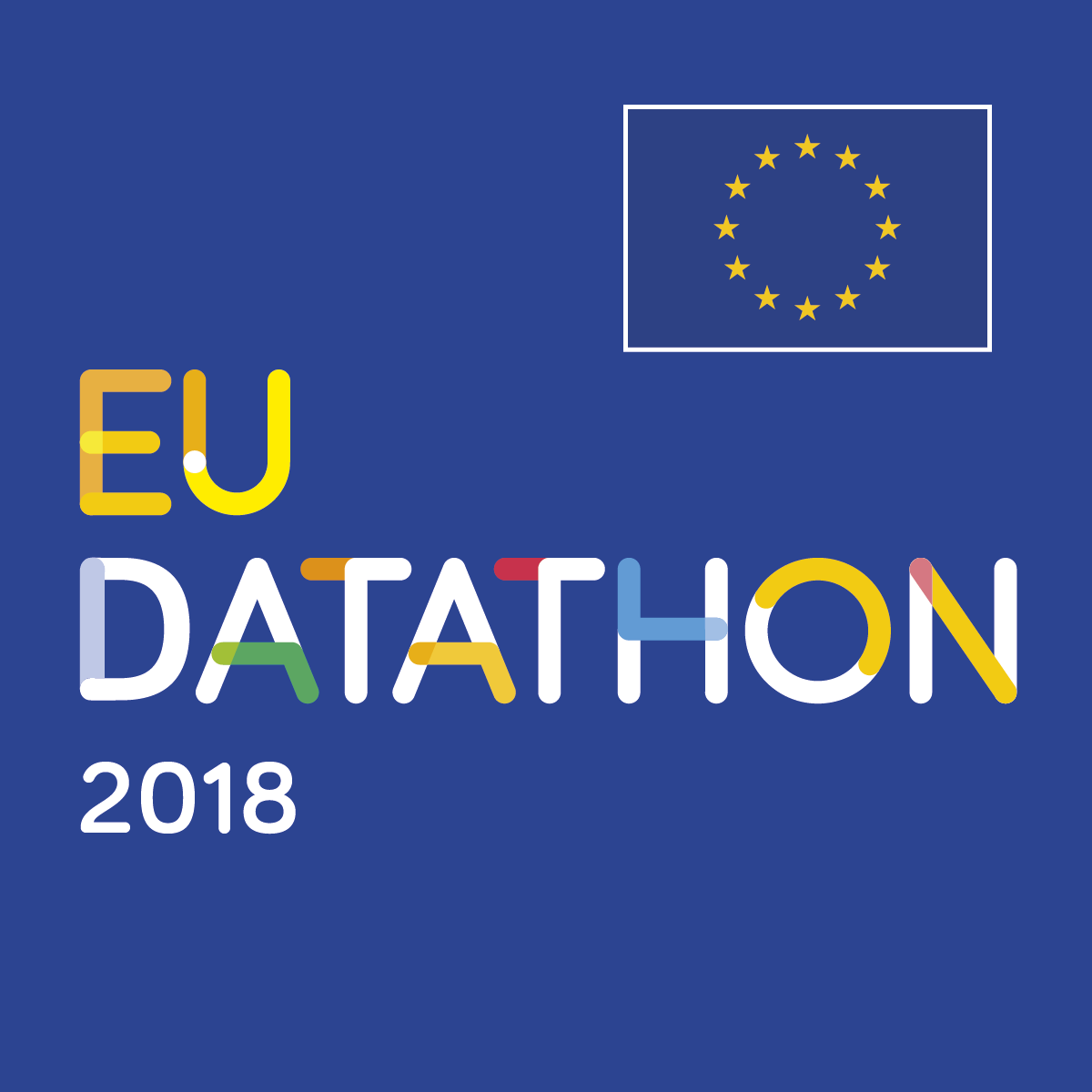 |
|
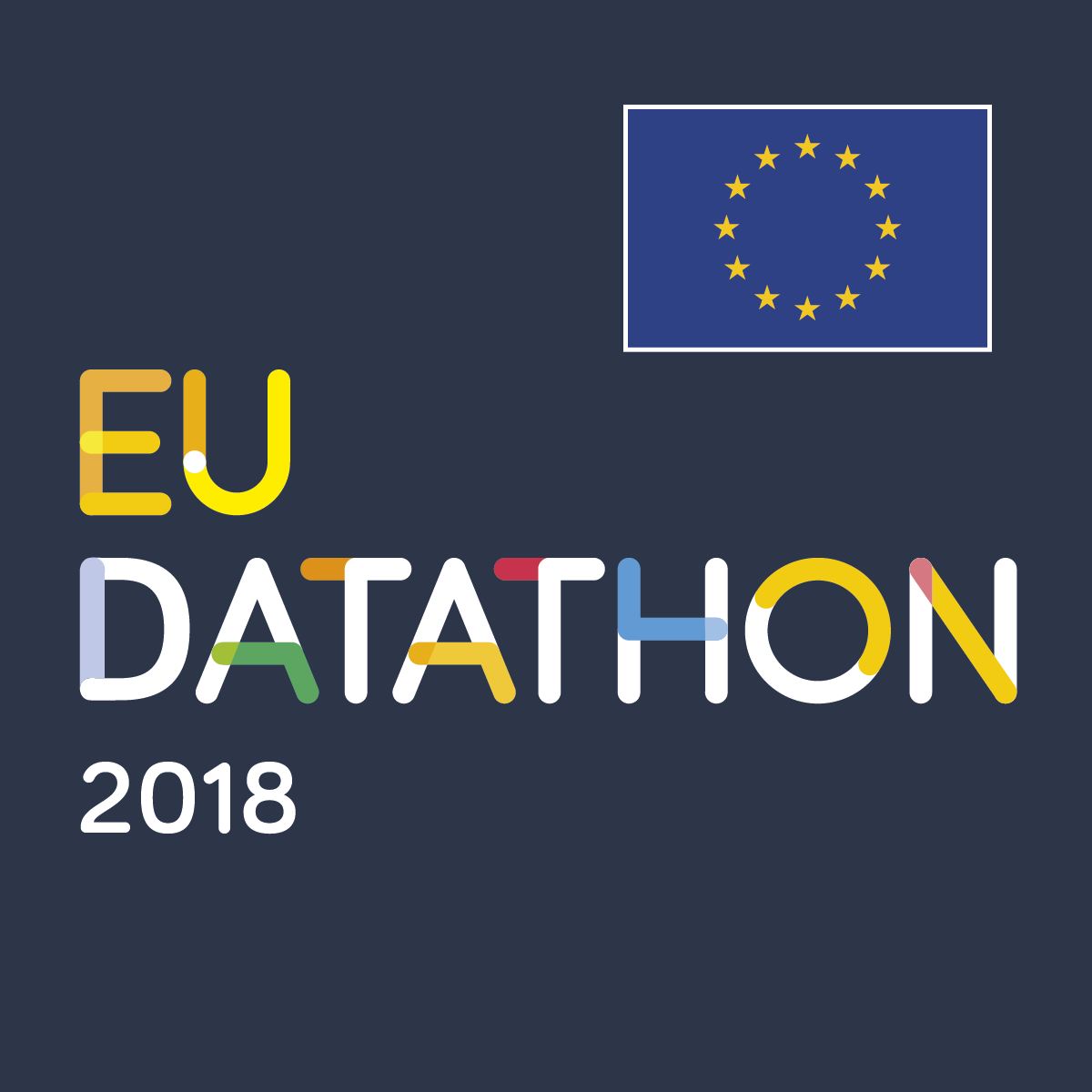 |
|
 |
|
 |
|
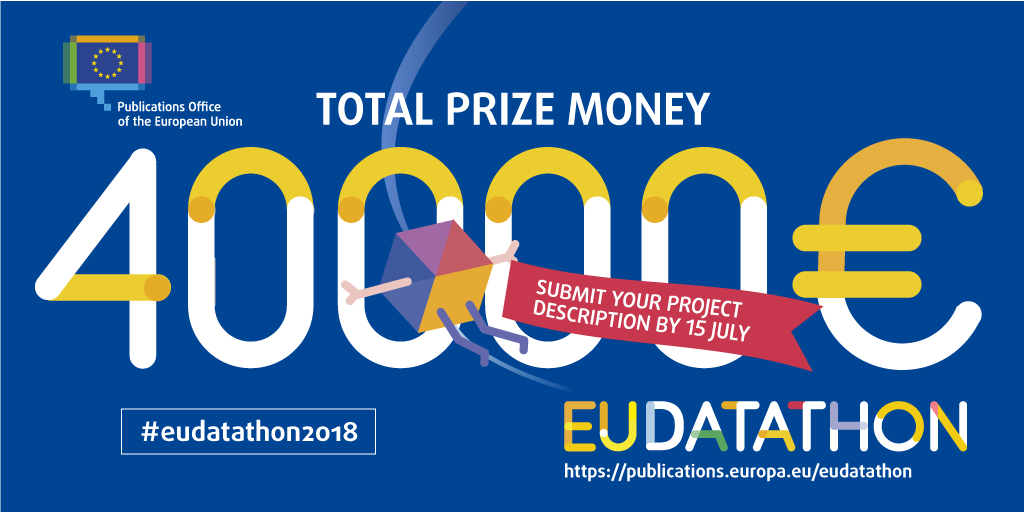 |
|
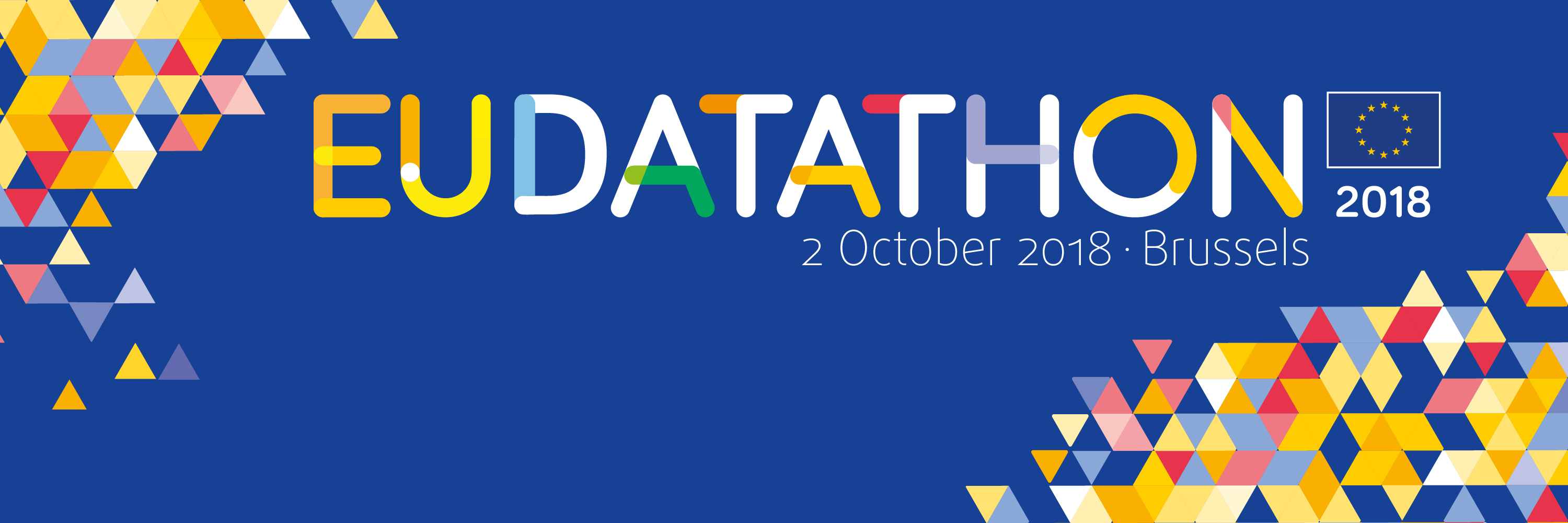 |
|
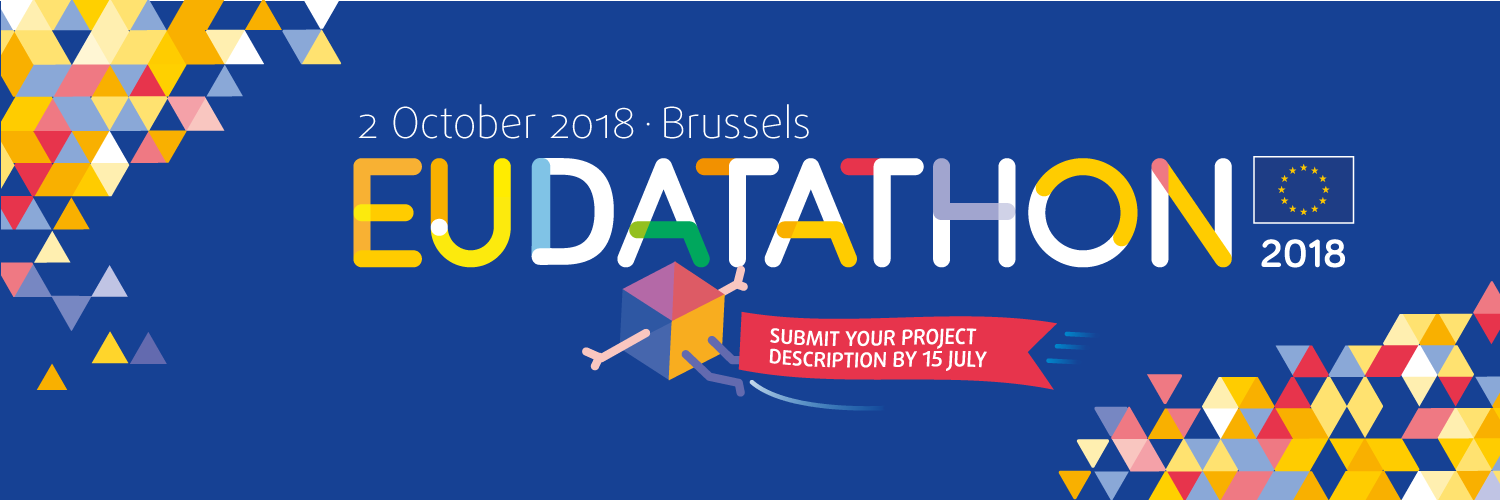 |
|
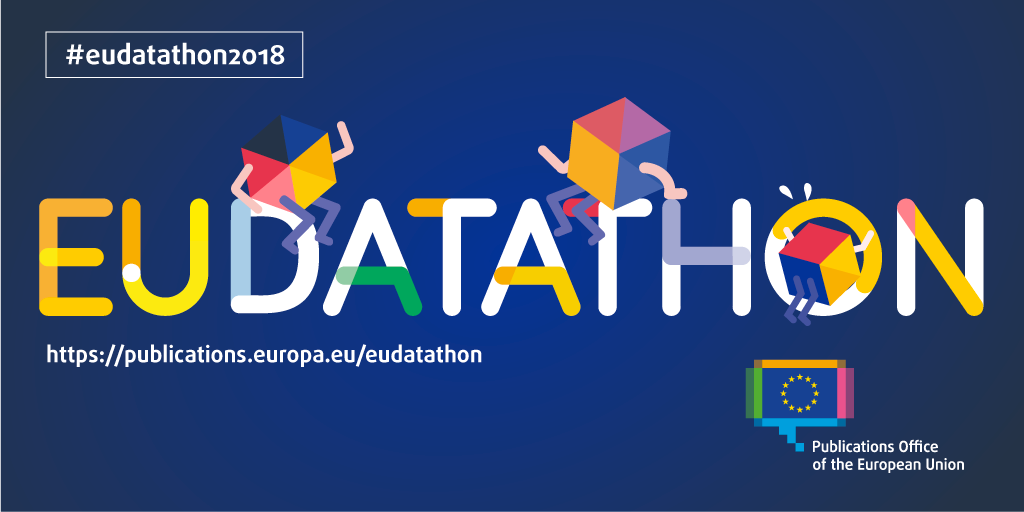 |
|
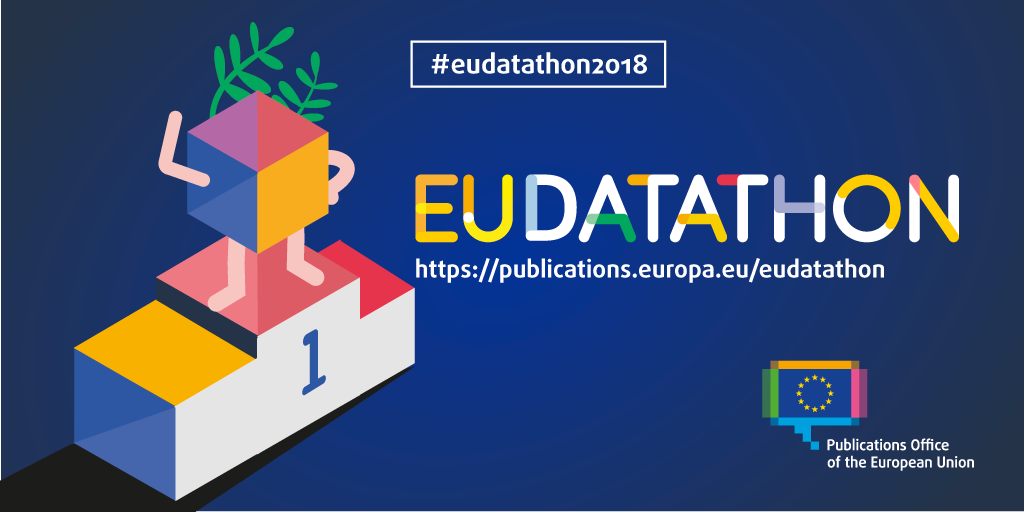 |
|
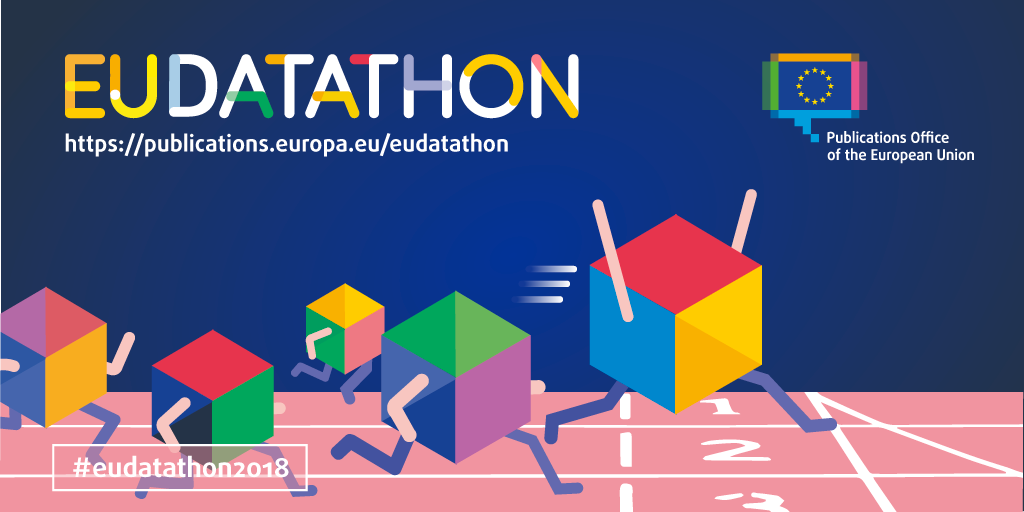 |
|
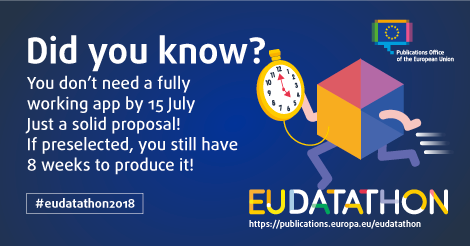 |
|
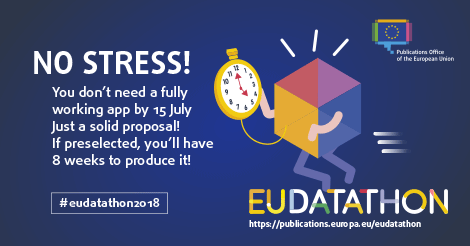 |
|
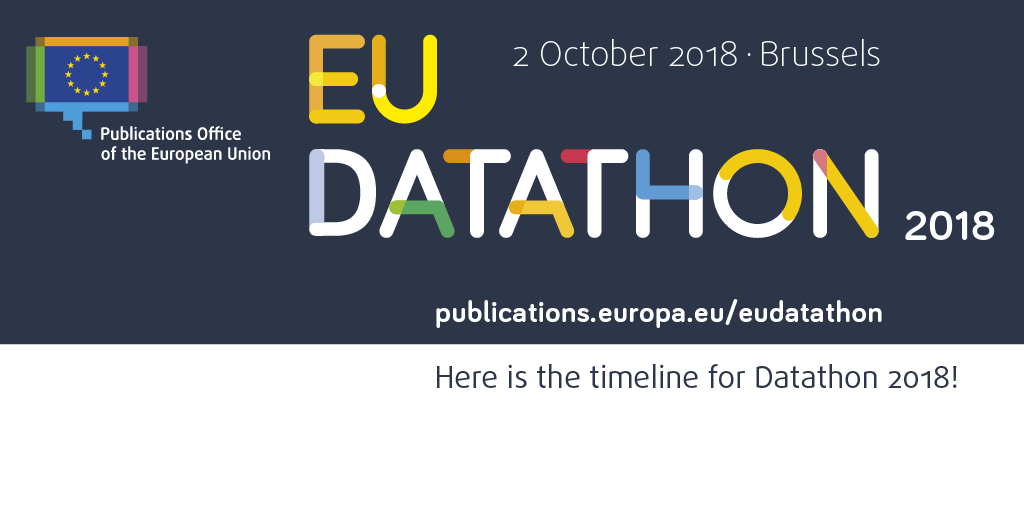 |
|
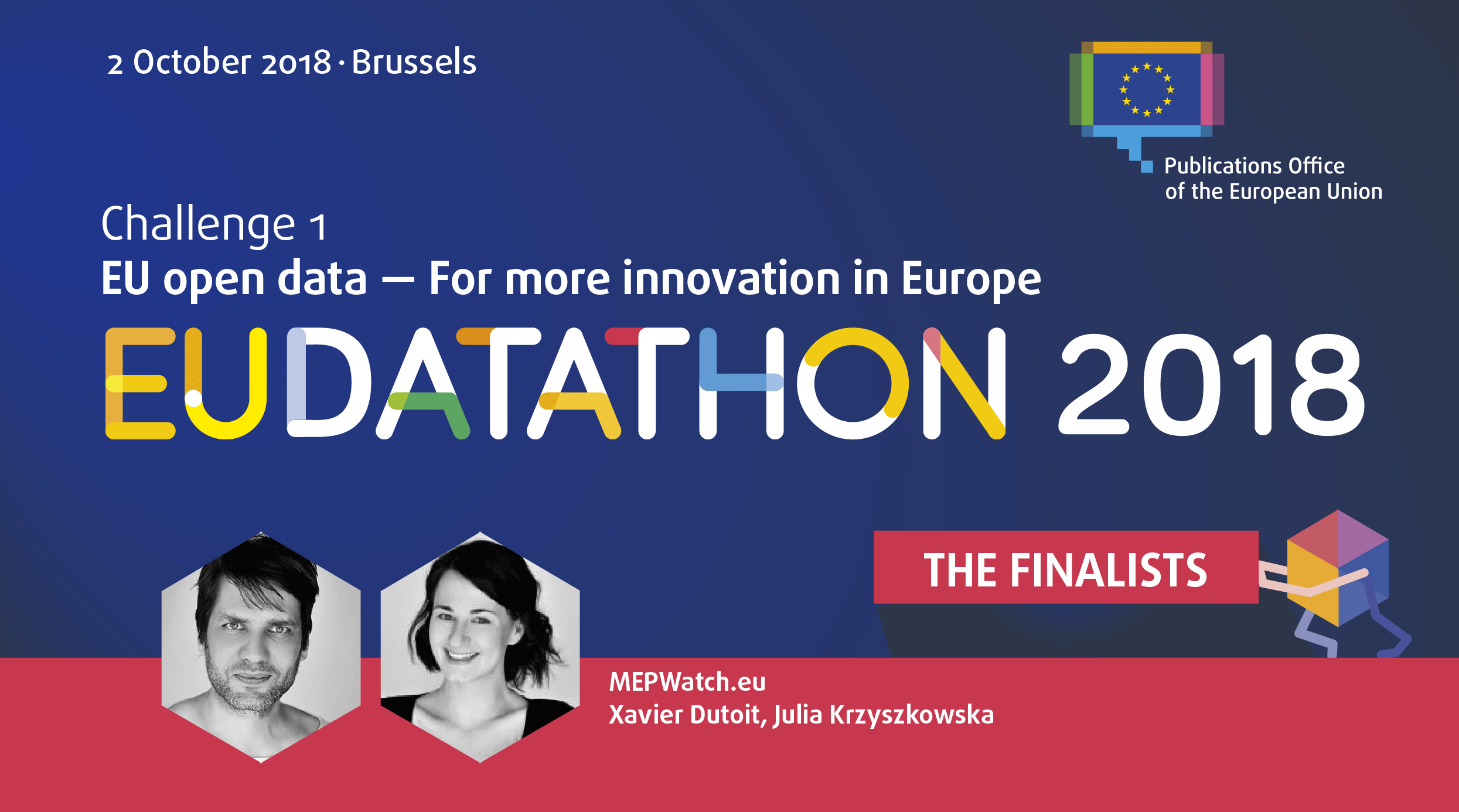 |
|
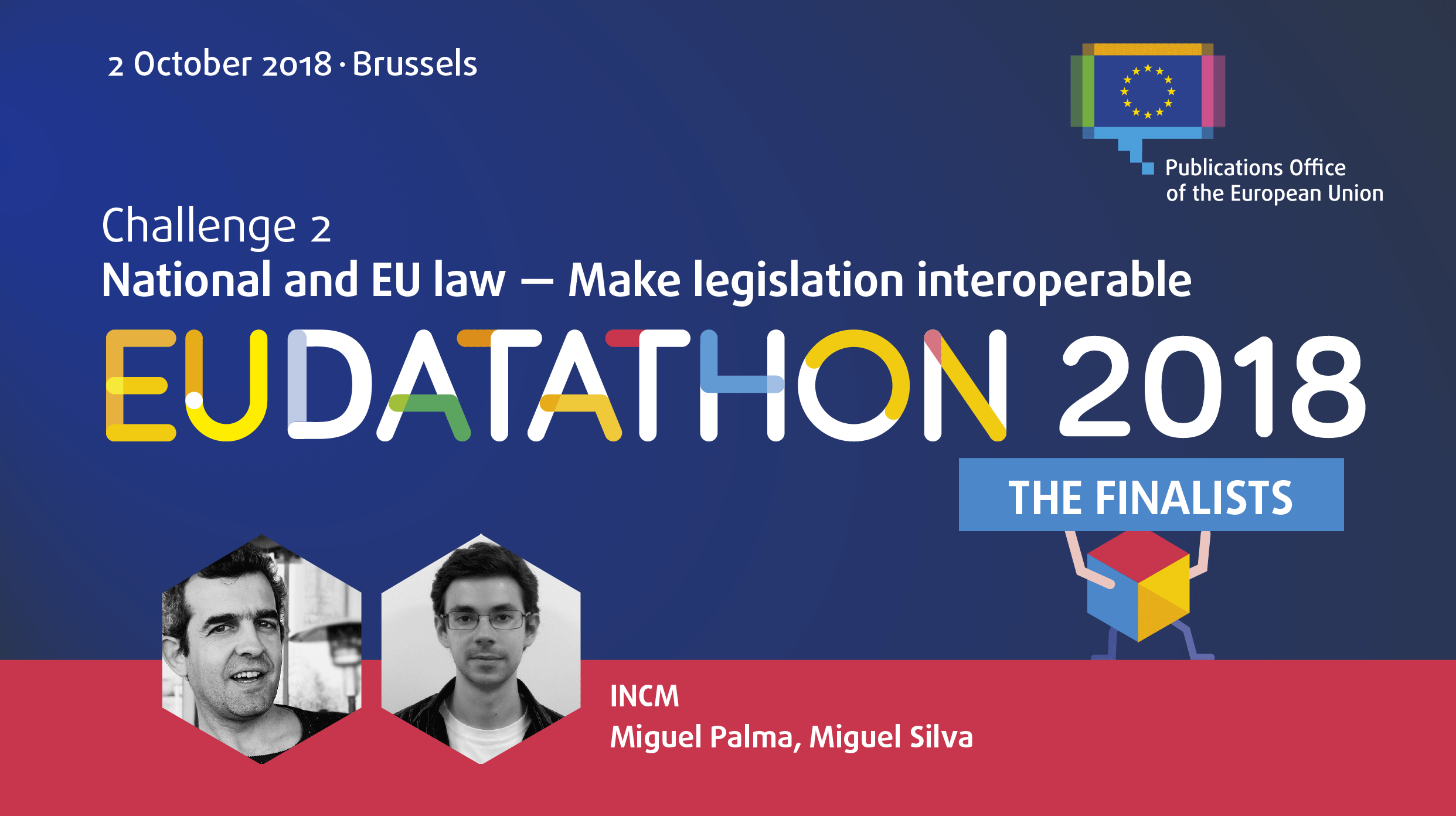 |
|
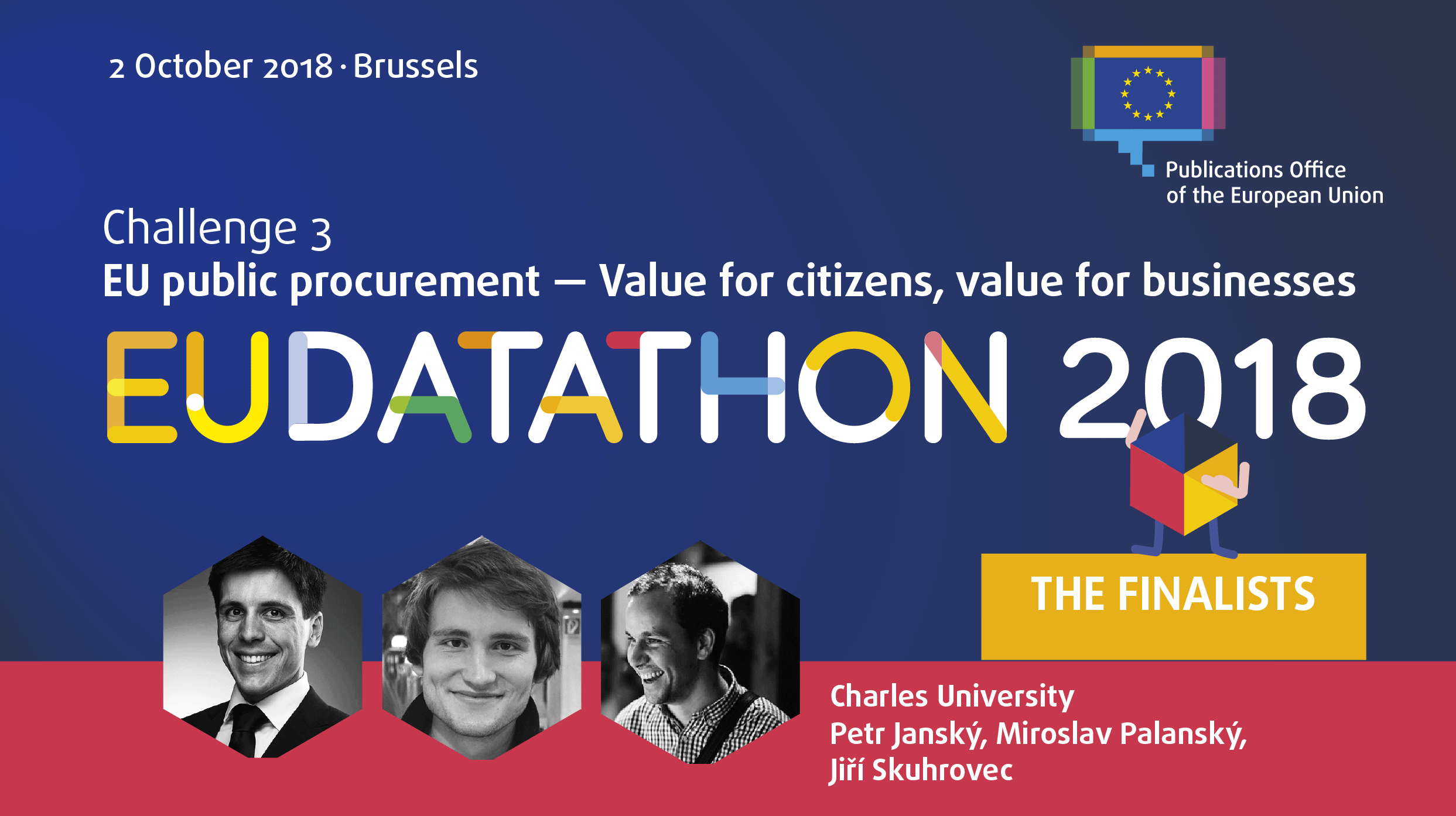 |
|
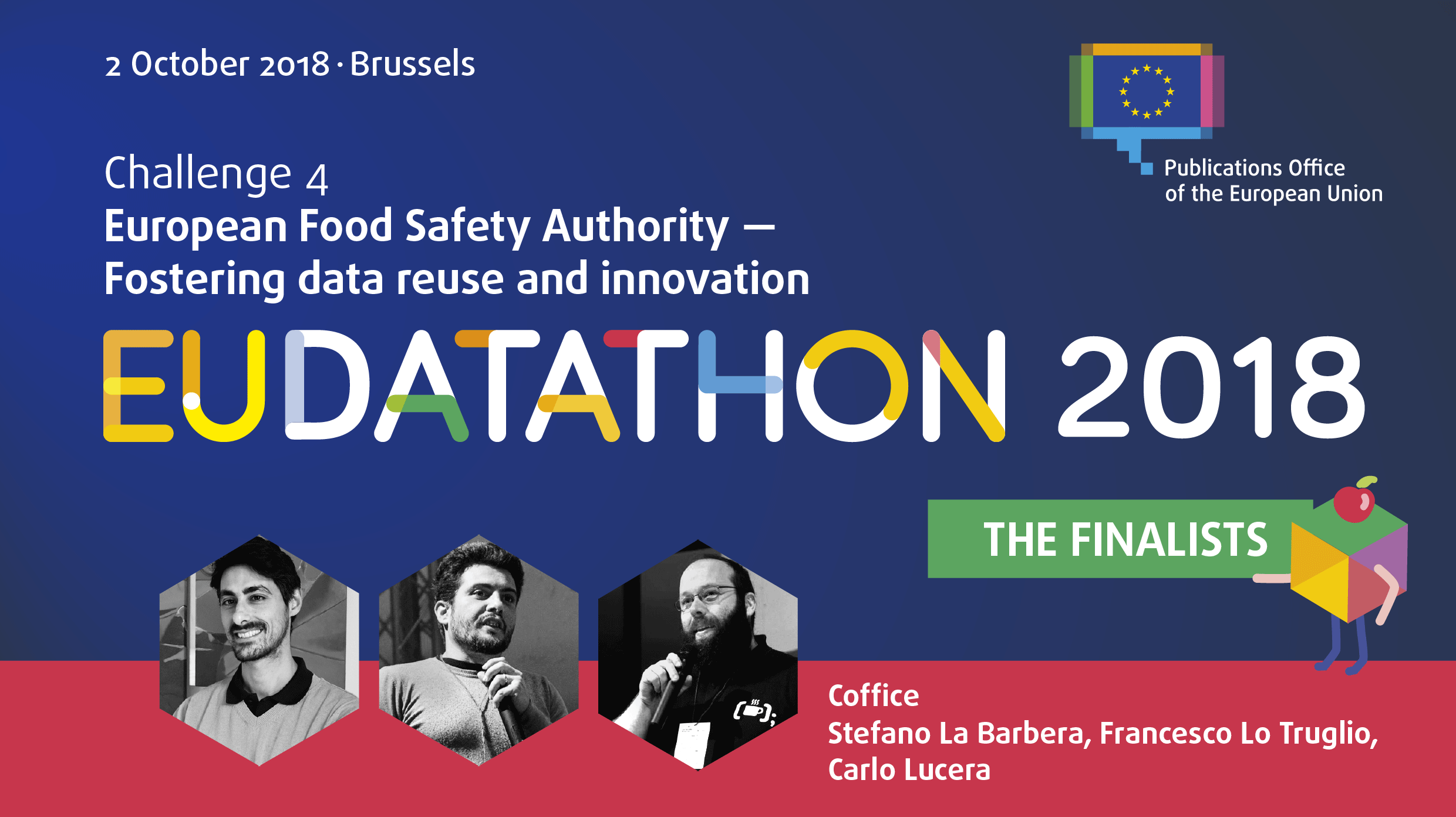 |
|
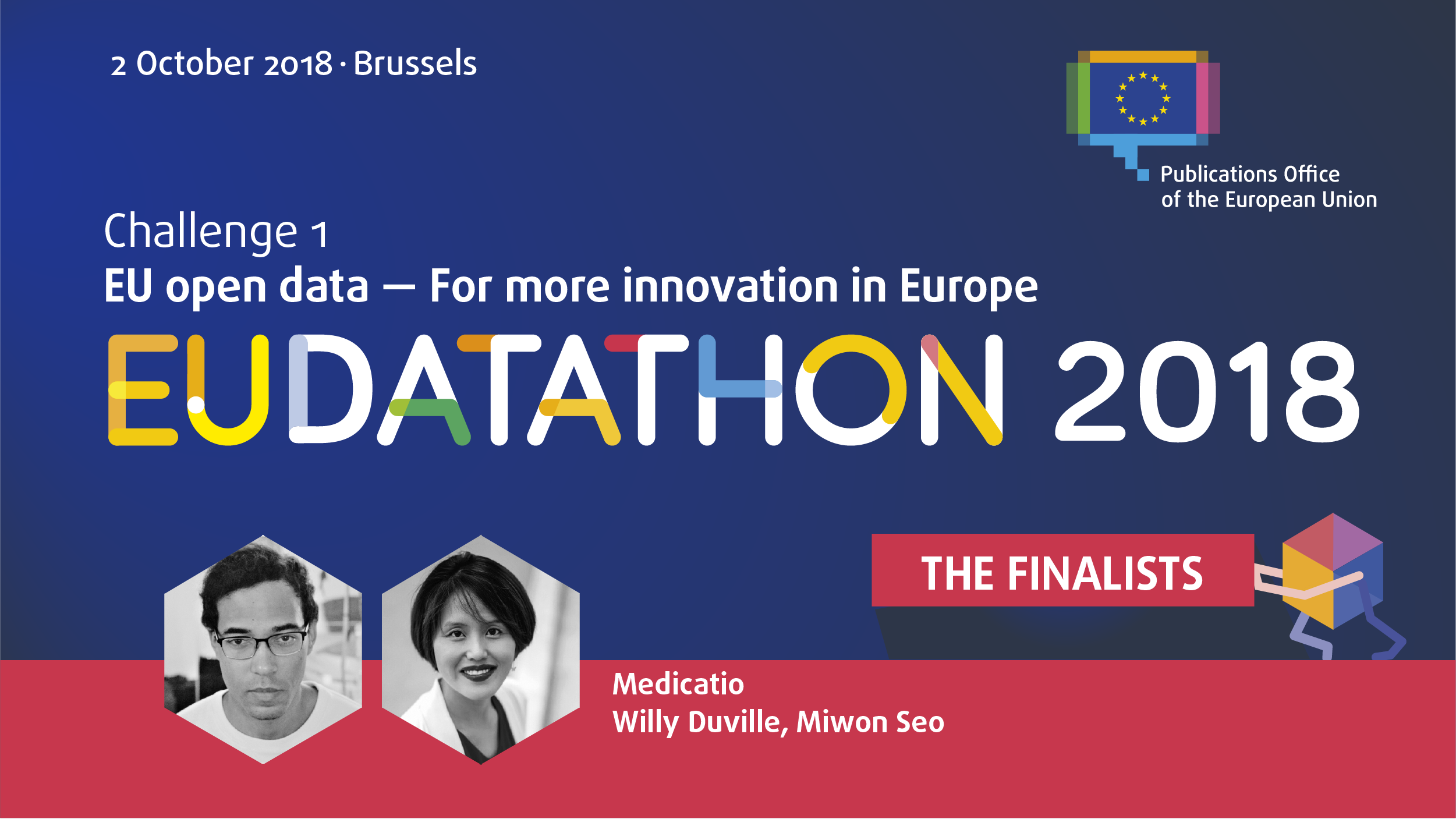 |
|
Any questions?

